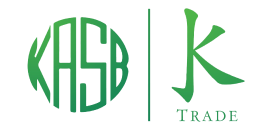Good Morning
The previous week saw the market witness a sustained uptrend for all trading sessions largely instigated by a surprise 100bps cut in interest rates to 7.0%. This bullish spree brought the KSE100 index back towards the 35k market by the week’s end. We believe lower interest rates have compelled investors to re-allocate their assets towards equities in hopes of a relatively higher return.
We also witnessed signs of rebounding economic activity, reflected in the rising trade deficit, which grew by 45% MoM to USD 2.1bn. While the Rs. 25 hike in petroleum prices may keep inflation upwards sticky in the coming months, we believe the SBP will continue keeping interest rates on the lower side to aid economic recovery.
Market View: The KSE100 ended the earlier week up by 1,112 points, to close at 35,051 points. The market continued to find support from inflows of funds by key institutions supported by the lower interest rates. Onwards, we believe the result season will likely dictate the index’s trajectory as it would reflect the impact of the coronavirus on companies’ financial performances.
Commodities:
Brent oil (USD/bbl): 42.92 (0.28% D/D)
WTI oil (USD/bbl): 40.37 (-0.69% D/D)
Gold (USD/oz): 1,774.58 (0.00% D/D)
National News
$6 bn IMF programme: Govt needs to do electricity, gas tariff adjustments
Even after approval of the budget for 2020-21 from Parliament, the IMF sponsored programme of $6 billion for Pakistan hangs in balance where Islamabad will have to comply with tariff adjustments on electricity and gas as well as to undertake reform path to evolve staff level agreement on completion of second review.
Govt seeks loan to improve fiscal, regulatory management
The government has requested a $250 million loan from the Asian Infrastructure Investment Bank (AIIB) to improve fiscal management and regulatory framework to foster growth and competitiveness.
Decision on fertiliser plants may cost Pakistan Rs6b
At a time when Pakistan is struggling to maintain its foreign exchange reserves, Economic Coordination Committee’s (ECC) decision to operate RLNG-based fertiliser plants may result in outflow of Rs6 billion ($36 million). In its recent meeting, the ECC approved gas at the rate of Rs756 per mmbtu to two RLNG-based fertiliser plants, namely Agritech and Fatima Fertiliser, for three months (July-September). The government claims that the subsidy, worth Rs959 million, provided to LNG fertiliser plants will help ensure sufficient urea supply in the country.
Trade deficit narrows to $23.2bd
Pakistan’s trade deficit narrowed down for the second consecutive year to $23.2 billion by the end of previous fiscal year on the back of a steep reduction in imports coupled with economic meltdown in the aftermath of the deadly respiratory disease. However, exports, which were struggling even before the Covid-19 pandemic hit the world economy, fell to a four-year low at $21.4 billion in fiscal year 2019-20 that ended on June 30, reported the Pakistan Bureau of Statistics (PBS) on Friday.
ECC approves up to Rs2.89 per unit raise in KE tariff
The Economic Coordination Committee (ECC) of the cabinet on Friday approved up to Rs2.89 per unit increase in electricity tariff for Karachi with immediate effect and allowed in principle shifting of Rs74 billion cost of LNG consumed by domestic and commercial sectors in winter months to power and industrial sectors.
OGDC starts output at Togh-1 well
Oil & Gas Development Company Limited (OGDCL), Mari Petroleum Company Limited, and Saif Energy Limited in a joint venture of Kohat Exploration Licence have started commercial production of gas and condensate from its exploratory well Togh-1 in Kohat, Khyber Pakhtunkhwa, a statement said on Friday.
WB censures power sector
Pakistan’s power sector has swallowed Rs 5 trillion ($ 45 billion) of national exchequer due to poor performance of Discos and other factors during the last ten years (FY 10-FY 19). This was observed by the World Bank in one of its report which is only for official use. Power sector incurs annual losses of approximately 2.2 per cent of GDP on account of ;(i) high costs of power generation;(ii) losses accumulated from unfunded public policy mandates and lack of timely revision of tariffs ; and (iii) poor performance of electricity Distribution Companies (Discos).
Taxes, duties on raw materials to be phased out
The government is working to gradually remove duties and taxes on raw materials for the industry under a three-year plan, Adviser to the PM on Commerce Razak Dawood said on Friday.
Banks defer Rs566bn principal loan payments
Under the State Bank of Pakistan (SBP) relief package, banks and DFIs have accepted over one million applications for loan deferment and restructuring and overall some Rs566 billion worth of principal loan payments have been deferred by one year to provide financial relief to the businesses during the COVID-19 pandemic.
Textile exporters perturbed over delays in GST refunds
Textile exporters are highly perturbed over excessive and unreasonable delays in GST refunds which have been causing liquidity problems since July 2019 when 17 percent GST was imposed by the Government in the previous budget despite of stiff resistance from Five Zero-Rated Export sectors.
https://epaper.brecorder.com/2020/07/05/7-page/843243-news.html
KASB Research

